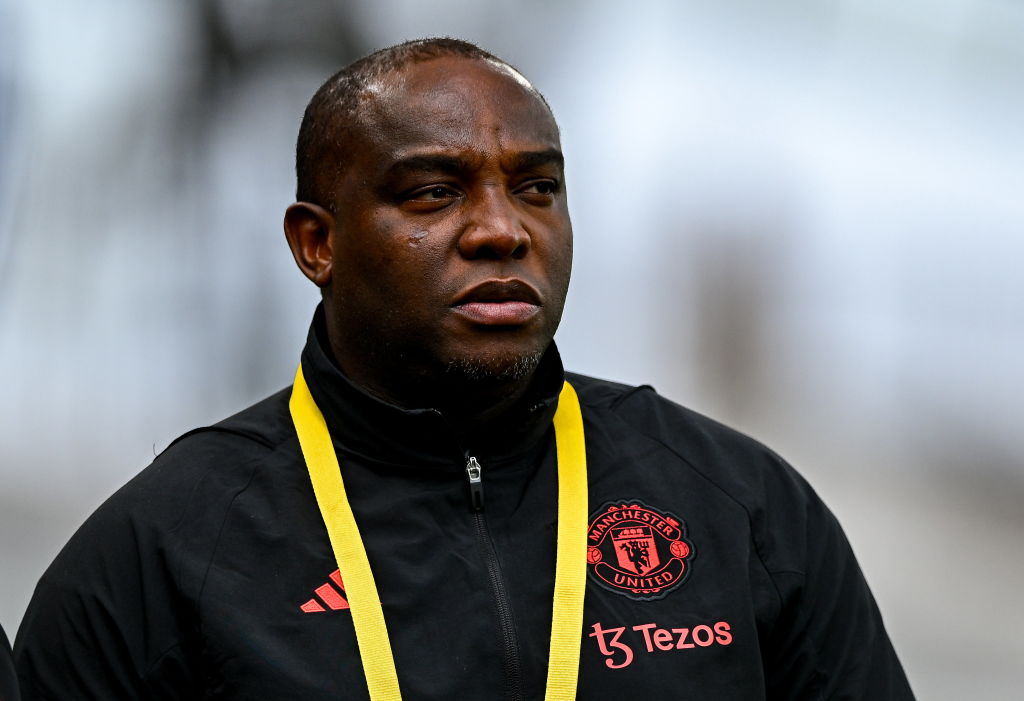As the new coach of Kenya’s Harambee Stars, Benni McCarthy is hoping to impart to the team his learnings from Manchester United, where he worked with some of the world’s top stars, including Cristiano Ronaldo.
South Africa’s all-time leading scorer in international football Benni McCarthy has long transitioned from a fearsome striker, who won the Champions League in Europe and played in England’s Premier League, to a successful coach.
He has won praise after spells at Cape Town City and AmaZulu FC in South Africa, and until the end of last season was a striker coach for boyhood idols Manchester United.
Now McCarthy has taken on the new challenge of a national team, appointed in charge of the Harambee Stars of Kenya as he looks ahead to 2027, when the country co-hosts the Africa Cup of Nations with Tanzania and Uganda.
It is a risky job because Kenya has much expectation but little past achievement, but McCarthy has an eye on shaking things up, as he explains to FORBES AFRICA how he took to coaching and what he learned at Manchester United.
Loading...
“Once I started working on TV as an analyst, I obviously started spending more time going through the teams a lot more thoroughly, learning more about them so that I would be able to analyze them better,” he says. “I felt it came naturally, not knowing if it was because of my football background because I’d played and was familiar with team tactics.
“I found I was able to quickly figure out what sort of system the various managers wanted to play with the players they had at their disposal. People were very encouraging about my analysis, feeling it was on point.”
But the biggest push came from his Scottish wife, Stacey, at the couple’s home in Edinburgh.
“My wife said to me, ‘maybe this is what you should be doing? You’d still be in football, in and around with the players’. I had missed the camaraderie of the change room plus the discipline it brings to your life and the competitive edge it gives you. My wife convinced me.
“That’s when I decided to go and do my coaching badges because I didn’t want to be in a situation where people just do me favors because I was an ex-player. I felt I needed to educate myself and learn what I didn’t know.”
These days, it is a requirement in most leagues that coaches at top-level clubs have the required qualifications, no longer relying only on time served as a player.
“I don’t think I could coach if I didn’t go on the courses,” McCarthy admits. “You think that if you’ve played in front of tens of thousands of people that you can handle it, but it’s a completely different kind of pressure.
“Having to speak in front of players, who are as good as you were, or even better, and convince them what you are trying to put across will make them even better… that’s a scary thought. I don’t think I would have survived without the training.
“It gave me the skill set on how to become more confident, to become a bit firmer, be able to speak out so that players can understand and buy into what you are saying. That’s what they teach you on these courses.”
His two seasons at Manchester United, working with some of the world’s top stars, including Cristiano Ronaldo, was also a massive learning curve at the very highest end of the game.
“We had a nice openness, and we pick each other’s brains, and we challenged each other. I felt that I could contribute,” McCarthy said.
“But it was an eye-opener because of the amount of work that goes into the job. The manager works countless hours.”
He will hope to bring all that experience and know-how into the Kenya role.
“I think [Kenya is] a sleeping giant in my eyes. I looked at the project and they are a country that has a lot of potential,” McCarthy said.
“Their conversations with me were that there was a lot of respect and admiration for me and they think my mentality and mindset, my story coming from Africa, moving to Europe at such a young age to survive and flourish under difficult circumstances, is a story Kenyans can take from and take it one notch further.”
Loading...
